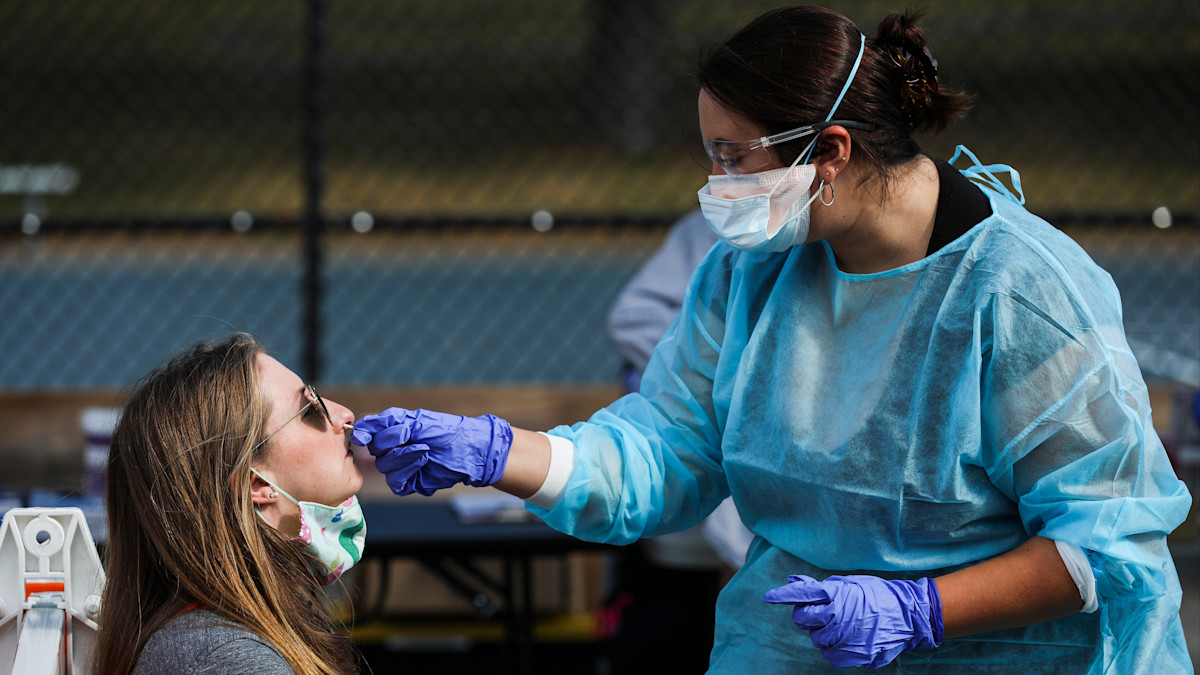
More than 3 million Americans are getting a COVID-19 vaccine a day. States are beginning to ease restrictions and eligibility for the vaccine is starting to open up to all adults in many places. Meanwhile, coronavirus cases are on the rise again. Five states – Florida, Michigan, New Jersey, New York, and Pennsylvania – reportedly account for 44% of the country’s new infections. And in early April, the CDC said the highly contagious UK strain is the most dominant in the US. Plus, some who are partially vaccinated have contracted the virus between their first and second shot of the Pfizer or Moderna vaccines.
That can happen?
Yes. One study published in December said the Pfizer vaccine was only 52% effective after the first dose. But another study published in March found that both Pfizer’s and Moderna’s vaccines reduced the risk of infection by 80% two weeks after the first dose.
Plot twist: people aren’t fully vaccinated against the virus until two weeks after their second Pfizer or Moderna dose (or two weeks after a single Johnson & Johnson dose). That’s because it can take weeks for your body to build up immunity. Note: While it is possible to contract COVID-19 between shots, one study from the UK shows that one dose can lower the risk of hospitalization in older people. But it's still unclear if one dose can lessen symptoms if you do get infected.
Yikes. What should I do if that happens to me?
Quarantine at home, rest, talk to your doctor, and take care of yourself. Experts say you should finish isolating and fully recover before getting your second dose so you don’t risk spreading the virus. Depending on how mild or severe your case is, that may take between 10 and 20 days.
Next: figure out if you need to reschedule your second dose. If there’s enough time for you to fully recover before your next dose, then you should be good to go. If not, call up your vaccination site or see if you can pick a new date online. And try to reschedule it for as early as you can.
Will delaying my shot change its effectiveness?
Not necessarily. The CDC says that you can delay your second dose up to 42 days after the first dose.
theSkimm
As vaccine eligibility opens up across the US, there are going to be new challenges along the way. One is the reality that it’s possible to contract COVID-19 during the vaccination process. And that means that practicing safety measures (like wearing masks and social distancing) is still important in stopping the spread.
Skimm'd by Maria Martinolich and Kamini Ramdeen
"between" - Google News
April 09, 2021 at 11:57PM
https://ift.tt/2PT9gtE
Getting COVID-19 Between Vaccine Shots: Yes, It's Possible - theSkimm
"between" - Google News
https://ift.tt/2WkNqP8
https://ift.tt/2WkjZfX
Bagikan Berita Ini















0 Response to "Getting COVID-19 Between Vaccine Shots: Yes, It's Possible - theSkimm"
Post a Comment